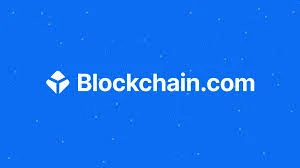In Nigeria, the technology of blockchain and tokenisation is moving from niche use cases to mainstream applications of real-world assets. Fractional ownership of property, tokenised investment vehicles, and other “real assets on chain” are increasingly discussed and regulated. This article examines how these developments are playing out, what opportunities they present for Nigeria, and what hurdles remain.
What Is Asset Tokenisation?
Put simply, asset tokenisation is converting a tangible or intangible real-world asset, such as real estate, a piece of art, infrastructure, or a company share, into a digital token that lives on a blockchain. This token can represent ownership rights, usage rights, or economic interest.
Key features include:
- Fractional ownership: instead of one owner holding the entire asset, many token-holders can hold very small units of it.
- Greater liquidity: previously illiquid assets (for example, large real estate or private equity) become easier to divide and trade.
- Digital transferability: ownership rights can be transferred via blockchain rather than paper systems.
- Potential cost reductions: fewer intermediaries and lower transaction overhead.
In Nigeria’s context, this offers significant promise given the large stock of physical assets, the youth-driven fintech ecosystem, and the push for digital innovation across sectors.
Where Nigeria Stands Today
Nigeria has made substantial strides in recognising blockchain, tokenised assets, and digital assets in its regulatory architecture.
The Securities and Exchange Commission of Nigeria (SEC) regards many virtual assets as securities unless proven otherwise, meaning tokenised assets could fall under its supervision. The Investments and Securities Act 2025 (ISA 2025) classifies digital and virtual assets as securities and expands the SEC’s oversight of virtual-asset service providers and token offerings.
The “Rules on Issuance, Offering Platforms and Custody of Digital Assets” provides regulatory direction for token offerings and digital exchanges. The Central Bank of Nigeria (CBN) has released guidelines allowing banks to hold accounts for registered VASPs, a major shift from earlier prohibitions. This evolving legal environment is creating more clarity for tokenised use of assets, although some uncertainties remain.
Practical Use Cases and Sectors
Some of the sectors where tokenisation is starting to gain traction in Nigeria include:
Real estate – Tokenisation could make large property assets more accessible to multiple investors and improve transparency, though tokens are not yet recognised as substitutes for legal title to land.
Asset management – Tokenisation in asset management is expected to enhance liquidity and accessibility of both physical and digital assets.
Emerging digital asset markets – Digital tokens can be used to distribute fractional interests in assets such as private equity or venture projects, unlocking new investment opportunities.
The Promise for Nigeria
- Increased access: Nigerians may access previously exclusive asset classes by owning tokenised fractions.
- Innovation and fintech leadership: Nigeria could position itself as a regional hub for tokenised asset innovation.
- Transparency and record-keeping: Blockchain offers immutable timestamps and auditable chains of ownership, which could help address issues like title fraud.
- Funding new projects: Tokenised assets may open new fundraising channels for start-ups, infrastructure, or property development.
Outlook for Nigeria’s Tokenised Future
Tokenisation of real-world assets offers a compelling opportunity for Nigeria: improved access, innovation, and efficiency in asset markets. The regulatory changes underway, including ISA 2025, SEC rules, and VASP licensing, are giving the space more structure and legitimacy.
For tokenisation to fulfil its promise, the country must build legal certainty, robust market infrastructure, and investor trust. If this alignment happens, Nigeria could become a major hub for tokenised real assets, enabling fractional ownership of property, infrastructure, and other high-value assets.
















